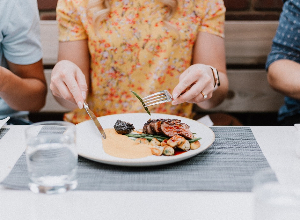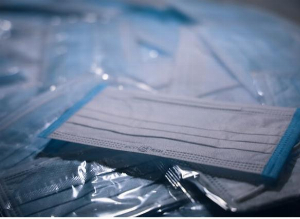Cancer and food: advice from a dietician (2/2)
Published 19 Jul 2019 • By Louise Bollecker
Let's continue the interview with Elisa Cloteau, dietician and nutritionist at Espace Mieux Manger in Pornichet, France. She talks about the impact of what we eat on our health, and in particular on the development of cancer.

Hello Elisa. You told us about red meat as a possible carcinogen in the first part of your interview. Can you tell us more about it?
According to the World Health Organization, there is a link between colorectal cancer and meat consumption. Similarly, several studies suggest that such a link may exist between the development of prostate cancer and pancreatic cancer. Nevertheless, people who eat a lot of meat often eat very few vegetables, which has an impact on the results of this research.
>> Read the first part of Elisa's interview by clicking here
Meat contains iron and oxidized iron, which could explain the link between the appearance of cancer and meat consumption, but the amount consumed, as well as the amount of antioxidants consumed, must be taken into account. If meals contain a lot of vegetables, fruit and spices, there is practically no oxidation and the risk of cancer is reduced.
Are some meats better than others?
Avoid meats from intensive agriculture, processed meats and red meats (pork, beef, veal, lamb, mutton, horse, goat). It is also important to focus on meat quality and choose poultry (chicken, duck, turkey) and rabbit meat.
In terms of recommended quantities, it all depends on your age, health and lifestyle. Eggs, dairy products and plant products also contain protein. The amount of meat you should eat should therefore also depend on the amount of these proteins you eat.
Can dairy products contribute to the development of cancer?
There are many contradictory studies on this subject, especially since the dairy industry is very influential. So I can't say that milk promotes cancer. It should not be forgotten that the quality of milk depends on what the animals eat, how they are treated medically and how the milk is stored. The aspect of each person's intestinal flora is also important in whether or not they develop cancer.
What role does sugar and its derivatives such as Stevia play in the development of cancer?
In small amounts, sugar is not harmful in a balanced diet high in fibre. A little cane sugar, a little maple syrup or agave is perfect in a dessert or with coffee. It is also impossible to tell people to stop sugar completely, which has an impact on the psyche and morale: this would only lead to frustration and even eating disorders.
>> Testimonial: the sugar-free, gluten-free and lactose-free diet against disease
However, too much sugar, especially glucose-fructose syrup, in sweets, ready-to-use bakery products and commercial biscuits, is harmful. The same applies to some sauces and cereals. "False sugars" are often consumed in large quantities, it is also dangerous.
As far as cancer is concerned, cancer cells are quite "greedy" for glucose. The metabolism of these cells does not work as it should; cancer cells cannot burn sugar and therefore divide quickly, allowing the cancer to grow. Cancer cells that do not receive glucose then stop dividing. For cancer patients, it is therefore important to drastically limit glucose intake and be careful with "hidden sugars".
Can excessive alcohol consumption lead to cancer?
The International Agency for Research on Cancer (IARC) classifies regular alcohol consumption as a carcinogen. We are pretty sure of the link between alcohol and the development of breast, oral, esophageal, throat and colorectal cancers. In France, alcohol is even the second most important risk factor for developing cancer! Drinking in moderation is therefore not just a lip service, it is essential for our health.
>> Read our article about alcohol consumption
Thanks to Elisa Cloteau for her explanations! To read the first part of her interview, click here. And have you changed your diet because of a condition? What efforts do you make on a daily basis?

 Facebook
Facebook Twitter
Twitter



